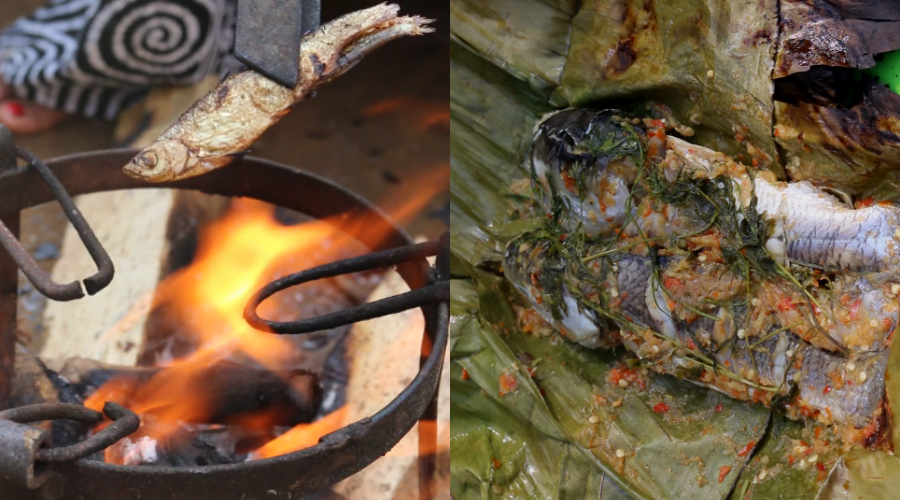Take A Closer Look At The Garo Cuisine With Chef Nambie Jessica Marak
Understand the Garo cuisine, its dishes and ingredients, with Chef Nambie Jessica Marak who was the first runner-up in MasterChef Season 8.
Chef Nambie Jessica Marak hails from the beautiful Garo Hills of Meghalaya and has been working towards bringing the authenticity, freshness, and resilience of the Garo cuisine to the country and the world. Marak’s stint as one of the four finalists in MasterChef India Season 8 (she was the first runner-up) won her love from the people of her land and across India.
“Nature is our only source of sustenance. Our life and food depend on it. It is only when nature is willing to provide us that we extract anything from it,” explained Marak. She mentioned that they never remove fruits or vegetables from the soil before the harvest season. “Garos worship nature, and we put a very hard limit on how much we extract from it,” she added.
Ingredients And Dishes That Stand Out For The Garos
“Garos are very frugal eaters and our cooking involves simple and humble ingredients, most of which are sourced from our surroundings,” said Marak. However, some ingredients like dry fish, pumpkin, different types of yams, rice, and tapioca are intrinsic to the community’s cuisine and will always be a part of a Garo kitchen.
Since the community depends on the harvest season for their yearly supply of various ingredients, fermentation and other preservation techniques are stitched into their everyday cooking and living. “Dry fish (called na’kam) is one of the most important ingredients in Garo cuisine. We fish as much as we can during the fishing season and then dry, ferment, and smoke the fish for the rest of the year,” explained Marak. Once they catch the fish, they clean it and pound it on hollow bamboo shoots over the firewood. The constant exposure to smoke renders a umami flavour to the fish and prevents it from developing fungus.

Most dishes in the cuisine are prepared without oil, which is substituted by an alkalising agent called kalchi. It is a potent liquid prepared by mixing bamboo ash in water. The ash is allowed to settle, and the water on top is used to prepare dishes. “Before we sow new seeds, we carry out slash and burn agriculture (also called jhoom cultivation) where the land is burnt down and so is the bamboo patch,” said Marak. The next morning, bamboo ash is collected from the patch where the crop grew and stored in every Garo household to make kalchi.
A kapa is a quintessential Garo preparation of any meat, including pork, chicken, or fish, mixed with ginger, chillis, herbs, local thyme, and kalchi that softens the meat. “As you cook the kapa, it bubbles up as if you have added sodium bicarbonate to it,” she added.
Some other dishes central to the cuisine include pura, a congee or broth prepared using rice flour, seasonal vegetables, and roselle powder. According to Marak, Meghalaya’s soil produces the best pumpkin in the country. “It almost tastes like butternut squash,” she said. Garos love cooking pumpkin with meat, ginger, salt, and kalchi and pairing it with rice.
While their spreads are not very elaborate, food means a great deal to the people of the Garo community. “It brings our community together in good and bad times,” Marak said.
What Does Food Mean To The Garos?
Talking about her village, Marak mentioned how the ritual is for the community to cook and eat together, whether it is a funeral or a Christmas celebration. “When someone passes away in a village, each household must send at least one representative to the funeral,” explained Marak. Each woman is supposed to carry banana leaves and firewood to cook and pack food, while men are the ones who do the actual cooking.
“Women only assist in carrying out tasks like cleaning the rice and chopping vegetables. The men solely prepare the gravies,” said Marak. Festivals also see people of the community congregating and preparing dishes with and for one another. “If I have to tell you what I am reminded of when I think about the Garo cuisine, I would say it is the taste of the land that has brought me up and made me who I am today. I want to do justice to this underrepresented cuisine and let the world see the magic of my land,” concluded Marak.